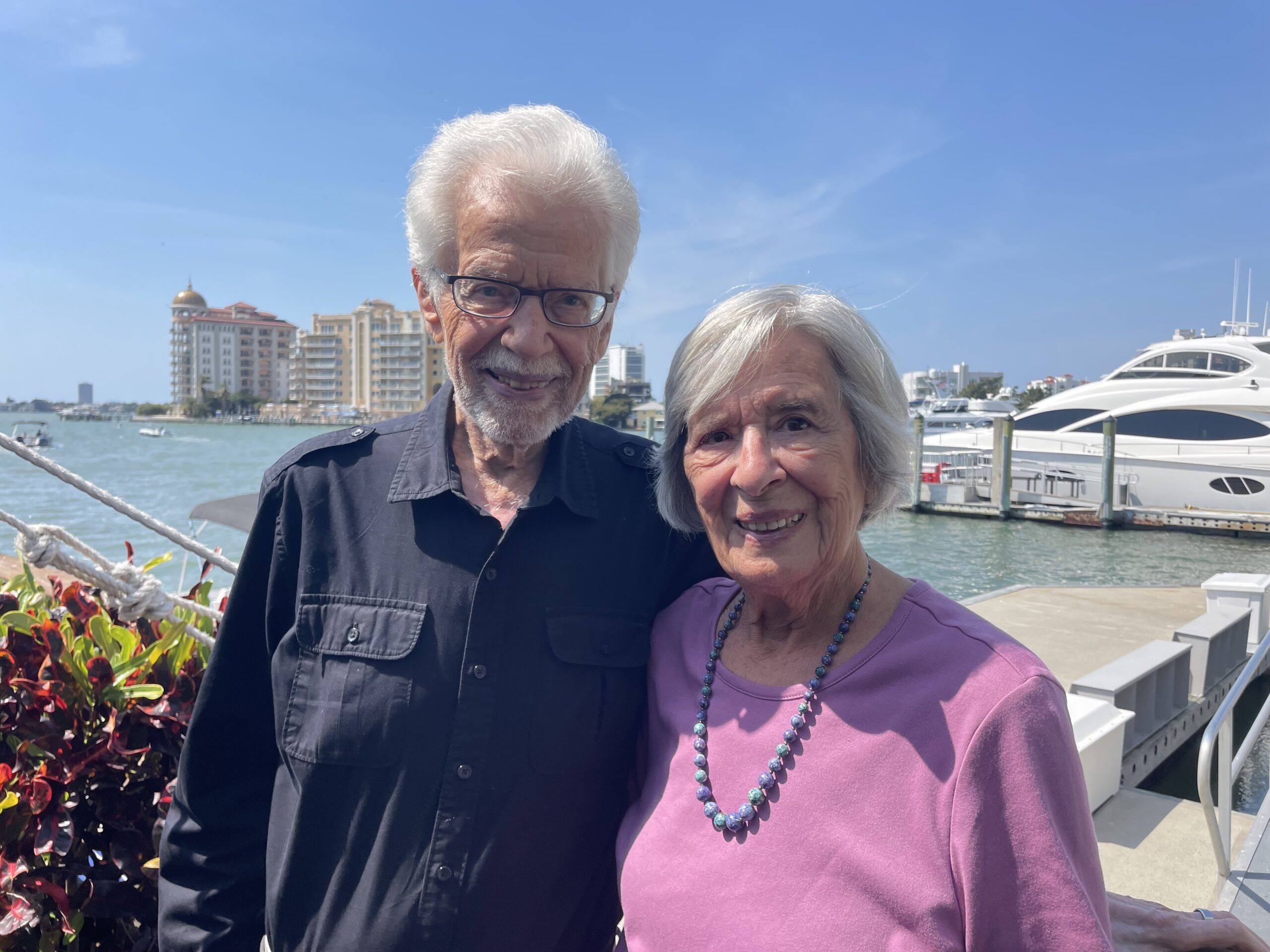Donor Stories
Living Simply So Others May Simply Live: Jerry and Anna Bedford

While their marriage began at Union Seminary in New York City, Jerry and Anna Bedford’s complementary ethos for giving began in the soils of Michigan and Wales. Jerry’s talents for planning and organization and Anna’s mastery of drama and communication led them as a team from New York to Kenya, then through Russia and Eastern Europe to Little Rock and Louisville. All along the way, they “lived simply so that others may simply live,” a teaching first espoused by Gandhi. Now, after a lifetime of hard work and joyful giving, they have been able to establish seed endowments for the charities of the John Cobb Legacy Fund as well as a charitable remainder unitrust (CRUT) that will ultimately benefit the Institute for Ecological Civilization.
Their story is inspiring.
Living on Half
It was President Lincoln’s offer of homestead land near the end of the Civil War that led Jerry’s great-grandfather to walk across the frozen surface of Lake Huron from Canada to claim a bit of fertile farmland in Michigan. Jerry grew up attending the same one-room schoolhouse that his father attended.
“My father thought that a tithe was a religious obligation,” recounts Jerry. “But the verse in the scripture that mentions bringing tithes and offerings led him to give even more out of gratitude in the good years. It wasn’t until I started helping him with the taxes that I realized why we were always penny pinching. But that approach to giving was deep in our value system.” Jerry eventually attended Wheaton College in Illinois, where he met Anna.
Jerry’s rural roots contrasted sharply with Anna’s early life in urban Wales. Both of her parents had been caught up in the evangelical revivals that swept through Wales in the early 20th century and inspired them to become missionaries in China. “They were ‘faith missionaries,’” says Anna, “meaning that they were not supported by any organization but relied only upon their local congregation for assistance.”
Life changed drastically after her parents separated. Anna’s mother supported not only her two daughters, but also her mother and sister. Life may not have been easy financially, but Anna grew up on rich stories of her mother’s love for China. Upon graduating high school at 16, Anna’s family moved to the United States where they again lived on faith. They traveled “from Harlem to Hollywood” to speak to churches about God’s love for China, living on what those churches provided.
After finishing at Union Seminary, Jerry and Anna moved to Kenya with a program of the Presbyterian Church called Frontier Interns. They were asked to live at the level of the local people that they were serving. “Most missionaries for other organizations were given a big house, a car and a driver, a cook, nanny, and gardener,” they remember. But the Bedfords were paid a subsistence salary of about $100 a month and lived among the African people.
“We realized early on that even our subsistence money was about twice what the locals lived on,” says Jerry, “and so we thought that if other people can live on half that money, then why can’t we?” Ever since, no matter how much money they made, they vowed to always try to live on half of it. And since their financial future was always uncertain, they saved half of what they didn’t spend and the other half went to charity.
Raising Food and Income
When their time in Kenya came to an end, Jerry and Anna traveled back home via Russia and Eastern Europe where they were exposed to even more cultures that differed greatly from the United States. Shortly after, Jerry was hired by the Heifer Project (now Heifer International) as their chief fundraiser. The Heifer Project is well known for providing cows, pigs, goats, chickens, and fish to help people in poor countries establish means for raising their own food and their income. Though he had no fundraising experience, Jerry knew about animals and could “shoot the breeze” with farmers and ask them to give him a cow to help others overseas. He eventually became development director, and then started the Heifer Foundation, taking their endowment from zero to $40 million in ten years. During this time, Anna worked as a teacher and writer, creating curricula and materials for both Heifer and Presbyterian Church Women.
Meanwhile, life in Little Rock exposed them to great poverty and children who needed help. That motivated Jerry to begin a food bank called the Arkansas Rice Depot that solicited gifts of rice from local growers. Cows were no longer a viable way to help, but rice was a way to feed hungry people. Jerry reached out to local county extension agents who agreed to create casserole recipes to use the donated rice plus the cheese and beans that became available, and people waiting in line at health clinics were able to receive this help. Churches, government, and others got involved and the program grew to 300 food pantries in the state.
Living simply and always helping in practical ways became the staple of the Bedfords’ diet.
A Trust for an Ecological Future
Since finishing their careers, Jerry and Anna no longer needed to add to their retirement investments, and they grew their charitable giving to now half of their income. “Americans think you can’t live on half your income,” says Jerry, “But we learned in Africa that you can.”
After serving on the board of Fonkoze, a microcredit nonprofit in Haiti, Jerry moved with Anna from Little Rock to Pilgrim Place, a retirement community in Claremont, California. They now spend half the year there and half in Sarasota, Florida. In Claremont, they met theologian and philosopher John B. Cobb, Jr., and got involved in a project to foster development of ecological civilization in China. They participated in a large ecological conference that was held in Claremont in 2015, and through that work met Philip Clayton, president of the Institute for Ecological Civilization, which was born out of that event.
“Trying to create an ecological civilization can be too bold for anyone’s imagination,” says Jerry. “It’s the breadth of the vision of EcoCiv that is its greatest strength.” There are so many aspects of its work, says Anna, “that everyone can grab a hold of just one thread to get involved.” They both understand that it’s the practical steps that EcoCiv fosters that are what changes the world. “Heifer wasn’t about cows, it was about hunger. But the way you deal with hunger is not just with the milk from the cows, but with the income that can be generated. That income then had many positive ramifications for the entire society and the economy,” says Jerry. “The difficult part with working toward an ecological civilization is how do you get people to really see what has to be done. This is the work that EcoCiv is engaged in now.”
The Bedfords want to support that work for years into the future. As prudent real estate investments early in their life together appreciated significantly in value, they placed those assets into a charitable remainder unitrust (CRUT). This trust will provide the Bedfords with income until their death, and then will provide income to their daughters until they pass. At that point, what is left will go to support key charities Bedfords, primarily EcoCiv.
Though their journey isn’t over yet, Jerry and Anna know that all those years of simple living and joyful giving have blessed others in manifold ways. Seeds from the soils of Michigan and Wales took root in other places and will now provide a bountiful harvest for years to come.
